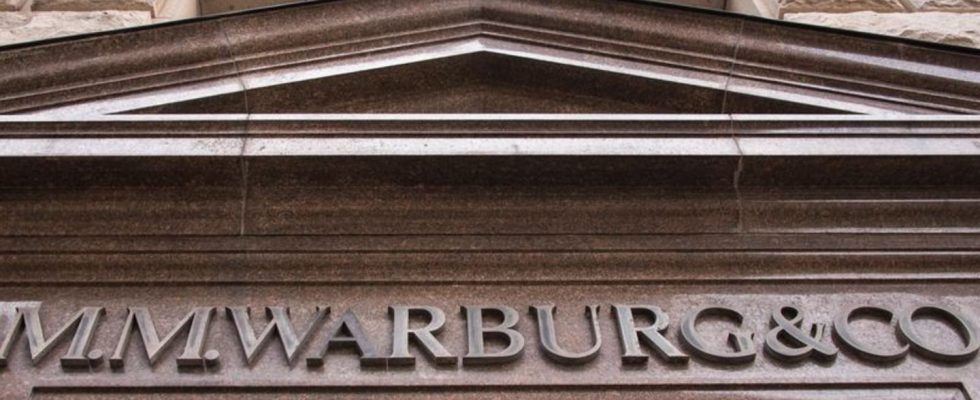Steer
Dispute over Warburg investigative committee escalates
View of the Warburg Bank entrance. photo
© Daniel Bockwoldt/dpa
A committee of inquiry is widely regarded as the opposition’s strongest weapon. But the CDU and CSU will probably not get their hands on them for the Warburg scandal, at least for the time being. The Union is foaming.
The dispute between the Union and the traffic light coalition for one Committee of inquiry into the tax scandal at the Hamburg Warburg Bank escalated. The Rules of Procedure Committee of the Bundestag rejected the appointment of such a committee on Tuesday. The traffic light now also wants to do this during the vote in the plenum on Thursday. The Union failed with the attempt to bring Chancellor Olaf Scholz (SPD) before this committee of inquiry. The CDU and CSU reacted with outrage and announced that they would appeal to the Federal Constitutional Court immediately after the parliamentary decision.
The committee of inquiry is said to be about Scholz’s role as a former head of government in Hamburg, former federal finance minister and current chancellor. He is accused of having influenced the “Cum-Ex” tax affair at the Warburg Bank during his time as Hamburg mayor. Scholz always rejected this. “Cum-Ex” caused the state total damage estimated at at least twelve billion euros. Investors had had a one-off capital gains tax refunded several times with the help of banks. The affair is already being worked up by a parliamentary investigative committee of the Hamburg Parliament.
Competences far exceeded
The SPD, Greens and FDP consider the Union’s application to be inaugurated to be largely unconstitutional because it involves events in the state of Hamburg. “The application far exceeds the investigative powers of the German Bundestag,” said the parliamentary director of the FDP parliamentary group, Stephan Thomae, the German Press Agency. It is unconstitutional and must be rejected. “Because we must not leave the soil of the rule of law.”
A “larger part” of the questions submitted by the CDU/CSU for the committee had been deemed unconstitutional by experts, said SPD parliamentary group leader Rolf Mützenich. “The Union had obviously not been prepared to address all of these constitutional concerns.” No one can ask the Bundestag to approve unconstitutional motions. The deputy leader of the Greens parliamentary group, Andreas Audretsch, also accused the Union of not using all the opportunities to make improvements.
Union insists on “legitimate minority interests”
Unlike the traffic light, the Union sees its application to set up the committee of inquiry as legally permissible. Group leader Friedrich Merz (CDU) wanted to get approval at the parliamentary group meeting on Tuesday in order to start the journey to Karlsruhe immediately after the decision of the Bundestag. The Union has no other way to assert its legitimate minority interests, he said.
Merz accused the traffic light of “by hook or by crook and completely without regard to the democratic damage caused by their behavior, to enforce the majority rights against the minority rights in the German Bundestag”. Merz emphasized: “The climate here in the house is poisoned in a way that I, as a really long-standing member of parliament, have never experienced before in Bonn, then in Berlin and now again here in Berlin.”
CSU regional group leader Alexander Dobrindt spoke of “renewed manipulation by the traffic light”. It is about “a deliberate disregard for the parliamentary rights of the opposition in the German Bundestag”. One wonders what kind of fear the traffic lights and the chancellor are behind such an approach.

